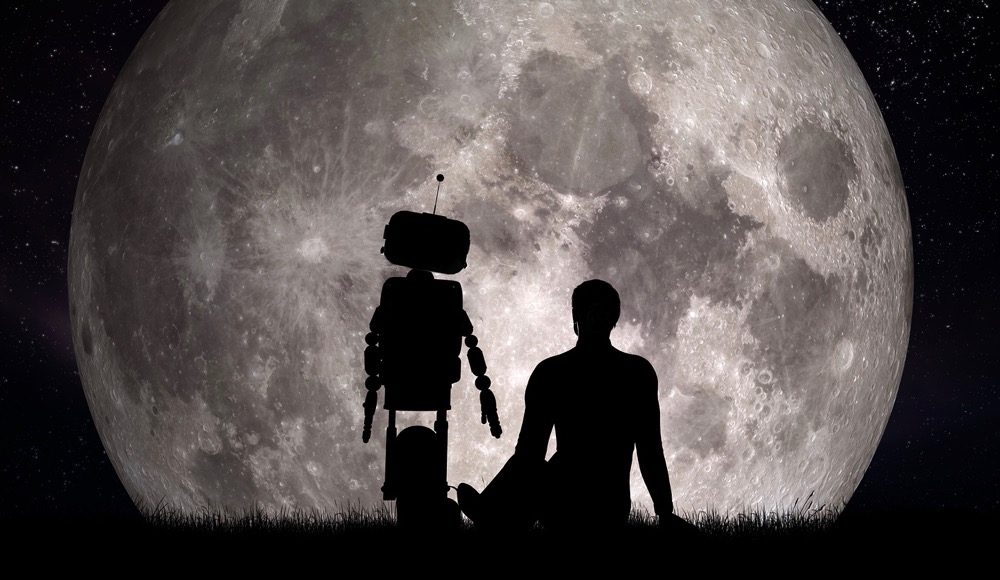The Future of AI in HR

Everywhere you turn today, someone is making a wild claim about artificial intelligence. If you aren’t deeply technical, you may struggle to separate fact from fiction. Is AI going to make us all more productive, or will it take all our jobs? In what areas will AI most affect human resources in the near term and in the long term? My goal in the next few paragraphs is to provide you with a high-level overview based on my own personal experience with building a digital assistant that uses artificial intelligence and the trends I’ve seen firsthand.
AI in the Enterprise
The vast majority of AI work up to this point has gone into consumer products, not business products. The reason is that companies that cater to consumers tend to have vast data sets about those consumers, and the recent trends in AI – particularly “deep learning” – are driven by the rise of very large data sets. Neural network technology has been around for decades. It didn’t stall because it was a bad idea, but because of the lack of large data sets to train on and adequate processing power to complete that training in a reasonable time frame.
The rise of big data – plus the clever idea to hack graphics processing cards in PCs to train the neural networks much faster than using a normal processor would have – caused an explosion in what is possible. Those trends are starting to carry over into the enterprise, as companies look to make existing tools and workflows a little bit smarter. I believe there are three big ways this will impact HR:
1. Prediction
The first area where AI will have an impact is on the prediction side, particularly in areas like recruiting the right talent and the training/development of your best employees. Dealing with humans is messy because people are complicated and we don’t yet have the level of granular data on individuals in some areas to feed into AI algorithms to make better predictions. One big area of advancement in AI over the last few years has been natural language processing. Now that human communications, which are mostly in natural language, can be used as data sets, expect to see big improvements in predictive analytics using natural language.
Related: Google X Founder Sebastian Thrun Talks Artificial Intelligence
2. Workflow Automation
The second area where AI will significantly impact HR is in workflow automation. Historically, humans were required to program workflows so computers could understand them. For workflows with lots of variability, this was too complicated. For example, if you’ve ever had to schedule a candidate to interview with four different members of your team, you probably know that things can quickly get messy. While we have good software for booking individual meetings on calendars, dealing with five calendars to schedule interviews you want to happen sequentially in a block of time turns into a very manual and time-consuming task.
Now, with machine-learning technologies, a machine that sees enough examples of a workflow, even if there is some variability in those examples, can figure out on its own what to do. Expect to see software in the next few years that automates simple HR processes like interview scheduling, employee performance reviews, employee onboarding, and even the answering of basic HR questions. This AI software will take on many forms, including traditional Web applications, conversational interfaces, and digital assistants (similar to what we are building at Talla).
3. Mass Personalization
The final area where AI will impact HR will be in mass personalization of information, particularly around training and employee growth.
Wouldn’t it be great if you could hire a coach for every employee? Until now, it’s been too expensive to hire human coaches, and software hasn’t been flexible enough to give the kind of customized training and coaching that individuals need. The type of machine-learning algorithms that make movie and restaurant recommendations will soon be available to do similar types of mass customization for employee-related training and coaching. As that happens, it will unleash improvements in workforce productivity that we haven’t seen in decades.
–
The key theme in the most recent wave of artificial intelligence technologies is that HR software will become software that learns from experience. Once you give these programs a goal, they will experiment on their own and find the best ways to achieve that goal. The thing that makes me most excited about intelligent software is that, compared to traditional software, it just gets more valuable over time as it learns from user interactions. So the more areas of human resources where you can implement such software, the more you can build a learning organization that automatically improves year over year.
Overall, I’m a big believer that these three trends will make employees at most companies more productive long before they will mature to the point of directly replacing humans in most jobs. For the next decade, I expect these new technologies to dramatically improve the productivity growth of most employees at most companies. As a leader in HR, you should invest the time to understand where the best opportunities are to apply AI in your company, as it can be more of a competitive advantage, if done right, than any technology that has come before it.
Rob May is the CEO and cofounder of Talla.

